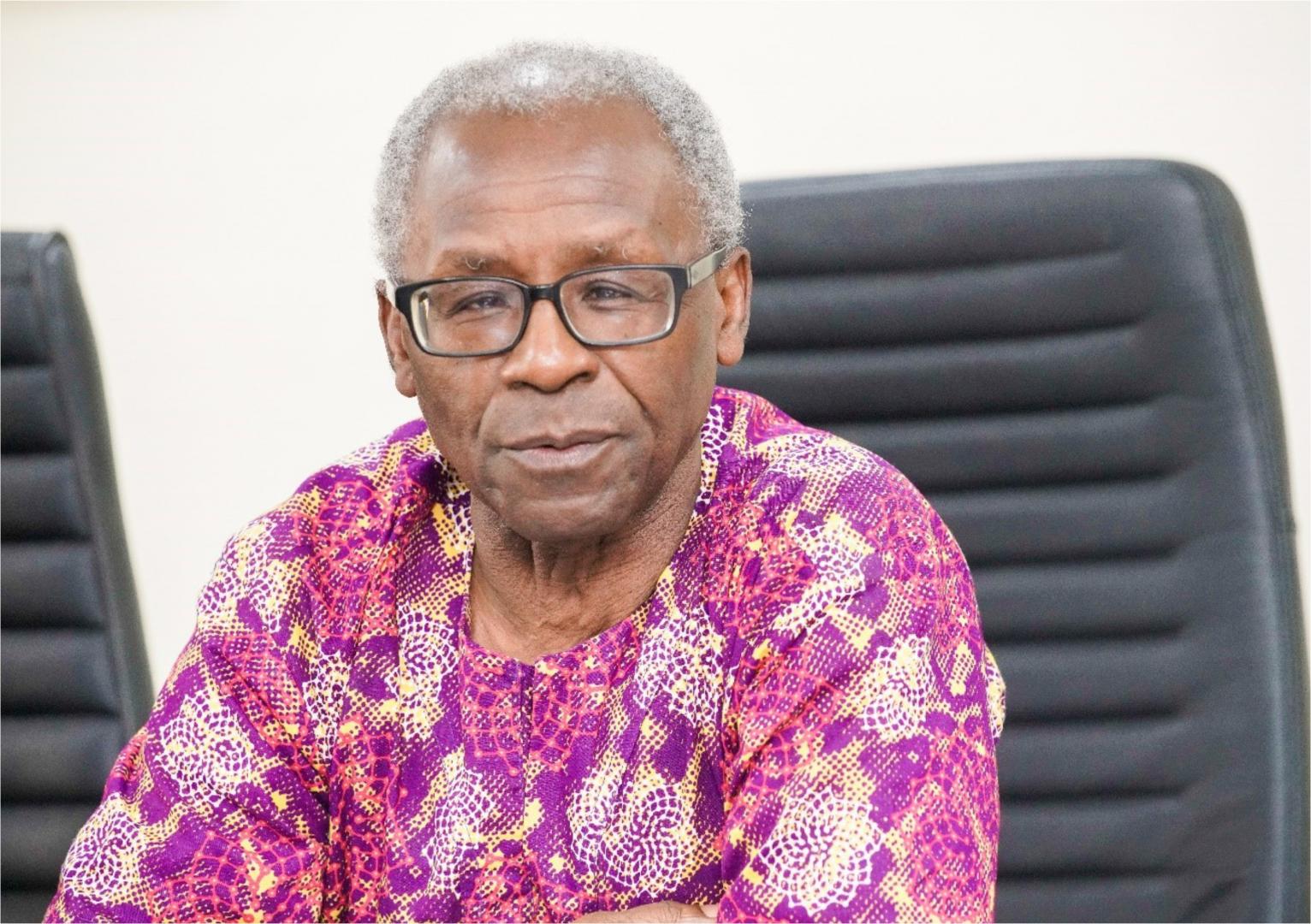Professor Oyewale Tomori, a professor of virology, is a man described as a scientist who doesn’t care ‘whose ox is gored’ when it comes to talking about the health situation in Nigeria.
Whenever Tomori thinks of Nigeria, he cries because he thinks he owes the country a lot. “I have cried for this country many times, I will try not to do it again, but it seems that I am failing because I owe this country more than I can repay,” he explained.
Tomori grew up when Nigeria had a good government. “It was the government of Obafemi Awolowo, who introduced free and compulsory primary education, which meant that if you didn’t send your child to school, the alternative was prison.
“So my father preferred to send me to school rather than to prison. This is how I started my academic journey. Good governance has made a difference in my life and I am very proud of my country .
“I have never studied outside of this country. All my education was here. Of course, when you want to do a postdoc, you go to another country. But basically, all my studies were done in this country. And the country provided the right environment for all of this to happen. And that’s why I said, you know, sometimes I keep saying it, I owe this country more than I could ever repay. But the current generation cannot say that because the country has abandoned them,” Tomori explained the reason for his tears.
But he is not content to just cry and do nothing about the dilapidated state of the health sector. In fact, he has devoted his entire life to contributing immensely in improving the welfare of Nigerians and Africans in general.
Born in Ilesa, Osun State on February 3, 1946, Tomori earned a Doctor of Veterinary Medicine (DVM) degree from Ahmadu Bello University, Zaria, as well as a Ph.D., Ph.D. in Virology from the University of Ibadan, Oyo State, where he was appointed Professor of Virology in 1981, the same year he received the Certificate of Public Health Service from the United States Department of Health and Human Services for his contributions to the Lassa fever research.
Tomori went on from those university days to serve in various positions of authority, including vice-chancellor of a university and president of the Nigerian Academy of Sciences. He has acquired large international footprints as an academic researcher and holds a position of distinction as Nigeria’s preeminent virologist.
He is recognized as a world authority on the many viral ailments plaguing Africa, such as Ebola, Lassa fever, yellow fever and monkeypox.
At 74, Professor Oyewale Tomori is the leading virologist who helped lead Nigeria’s efforts to kick polio out of the country, a feat that was accomplished in June 2020 after decades of effort.
A multi-award-winning specialist in human, zoonotic and veterinary viruses, including poliomyelitis virus, and outgoing President of the Nigerian Academy of Sciences, his journey to achieving this feat began when he was appointed Regional Virologist for the WHO African region. in 1994, where he established the African Regional Polio Laboratory Network, a unique laboratory system that provided diagnostic expertise to the Global Polio Eradication Initiative (GPEI). He was then appointed Chairman of the Nigerian Expert Review Committee on Polio Eradication and Routine Immunization in 2004 to date, a high-stakes role where he was responsible for ensuring that Nigeria wins. poliomyelitis at all costs.
“Eradication of polio in Nigeria was a battle I fought with undiluted passion,” he added.
At the height of the COVID-19 pandemic, Tomori was called upon by the world to help analyze, understand and cage the virus. Currently, despite his advanced age, Tomori has devoted his time and energy to getting Nigeria to start local vaccine production.
When asked where the country was in terms of local vaccine production, Tomori told me that Nigeria was supposed to have held a groundbreaking opening ceremony for the vaccine facility, but the plan was modified due to the extension of GAVI support to Nigeria in terms of vaccines.
“Nigeria was supposed to graduate from GAVI support in 2021, but in 2018, that graduation was extended to 2028, hence the whole business plan that Biovaccines had in 2018, was thrown under the box We had to go back to the federal government, get the details of the graduation extension, and based on that come up with a new business plan,” Tomori said.
Unlike before in 2021, when Nigeria was supposed to withdraw 100% of GAVI support, Tomori revealed that “what it is now is a staggered graduation, which means we graduating product by product. By 2024, for example, we will stop supporting the Penta vaccine. This means that Nigeria will procure the Penta vaccine, 100% with its money.
“This phased plan is what we have now incorporated into our business plan and have provided funding over 10 years, to allow us to have a bankable business case which we will then use to approach our financial partners. We are awaiting the approval by the Federal Executive Council of this new plan, to enable us to activate the first phase of the project.
The day Nigeria starts producing its own vaccines for its citizens would be a milestone in the health sector and one of my happiest days, Tomori said, “I can’t wait to see that day.”






More Stories
🌱 Rail In Roanoke Fifth Anniversary + ‘Love Letters’ Production
Industrial production in South Korea contracts by 1.8% in September
PM Modi lays foundation stone for C-295 transport aircraft production plant